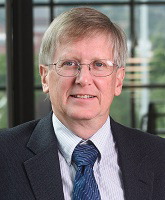Stephen E. Silliman has served as Dean of the School of Engineering and Applied Science at Gonzaga University since 2012. He completed his BSE in Civil Engineering at Princeton University and his Masters and Ph.D. in Hydrology and Water Resources at the University of Arizona. He was on the faculty of the University of Notre Dame from 1986-2012, rising through the ranks in the Department of Civil Engineering and Geological Sciences through Professor. He also served as Associate Dean in the College of Engineering from 2002-2008. His primary research interests relate to the study of groundwater flow, groundwater/surface water interaction, and the movement of chemicals in groundwater systems. He is also deeply interested in studies of engineering education. Through funding from multiple sources including the US National Science Foundation and the US Department of Energy, he has completed a number of studies involving laboratory, numerical, and field studies of hydrologic processes in a variety of geologic settings. These studies, as well as his interest in engineering education, have led to more than 80 publications. The intersection of his interests in hydrogeology and innovation in the educational experiences of his students led to the development of research and service-learning activities in multiple countries, including 20 years of collaboration with colleagues at the Université d’Abomey-Calavi in Benin, West Africa. Projects in Benin have included country-wide assessment of groundwater quality, development of village-level water quality monitoring strategies, village-level WASH initiatives, and studies of hydrologic processes in the coastal/lake region bounding Cotonou, Benin. USAID Profile
U.S. Global Development Lab
Center for Development Research Stephen Silliman is a member of the Center for Development Research (CDR) within the U.S. Global Development Lab. The CDR increases the use of scientific research to improve development outcomes through partnering with other parts of the Agency, federal agencies, universities, NGOs, and the private sector to increase the scientific knowledge and evidence directed toward addressing USAID’s development priorities. Dr. Silliman is contributing through efforts to better understand the role of higher education in scientific research focused on development efforts, as well as to explore the potential for advances in development initiatives at the intersection of higher education and the private sector. He is also contributing to multiple projects involving collaboration of US universities with researchers and universities in multiple lower and middle-income countries.
|




